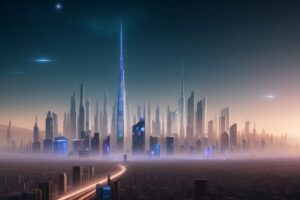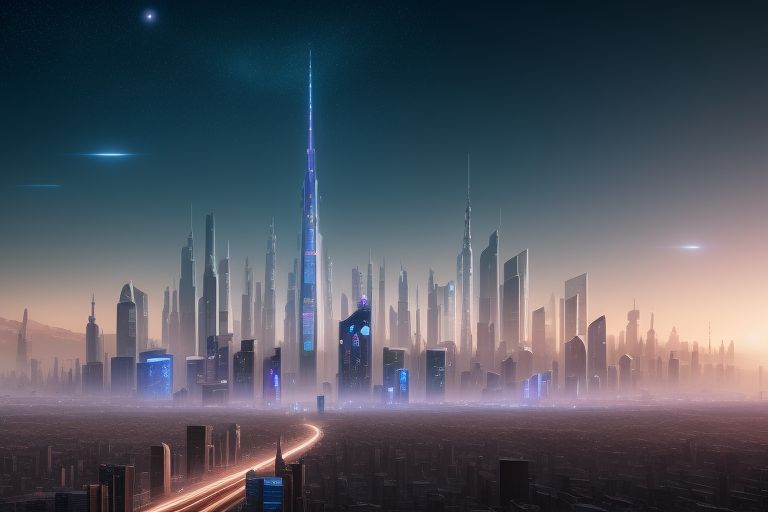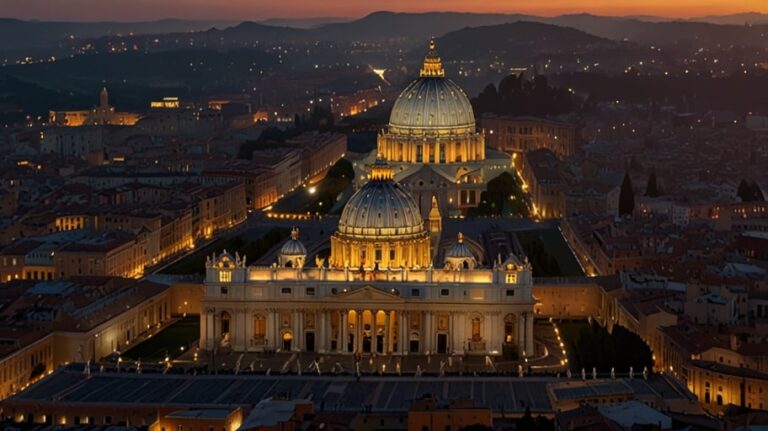In a dried-up, arid desert kingdom, a tremendous shift is taking place that the whole world is noticing. A place once famously characterized by traditionalism and oil wealth, now such a nation is on the path towards modernization, with the aim of re-defining the identity of its people.
Ambitious reforms, brought on by a go-getter leader, are a clear indication that the country is moving from traditional policies to more liberal ones. The latter aspect becomes the subject of curiosity not just within the country but also around the globe.
The royal family’s young heir, a man who is simultaneously a source of admiration and a target of scrutiny, has been backing the driven transition with an absolutely decided attitude. His idea outgrows the necessity for oil and focuses on technology, the touristy field, and the acceptance of other cultures.
Extravagant development projects, for example, cutting-edge cities and extensive entertainment centres, spring up in the desert, drawing local and global tourists and contributing guarantees of a financially sound society and a new societal structure necessary for such numbers of people.
Diversification of the economy forms the base of this new grand strategy, of which a significant amount of the investments goes to renewable energy sources and artificial intelligence. The country desires to be at the forefront of technological developments, thus attracting the energy and determination of the youths of the world.
The new landscape, spotted with solar farms and wind turbines, stands as a clear identity of the country that has pledged allegiance to the conservation of the environment in a globe that recognizes the dangers of a heating planet.
Tourism has developed unexpectedly and today it is one of the main economic drivers as the old as well as the new both stand as tourist attraction spots. This radical change has so much to offer to the people.
The rest of the world is now invited to observe a country that through its hospitality and heritage is crafting a new narrative. This move breaks the stereotype and forges a new image that the people of the world have in mind in relation to the country.
Albeit marked by some as a very controversial move, cultural reforms appear to be a leap in themselves. Women, who are now taking the wheel, attending concerts, and joining the labor force, are the ones breaking down the walls, generations deep, of tradition.
Cinemas, previously closed for years, now show global blockbusters. The change, accepted by some and criticized by others, has brought forward the issue of tradition versus progress, a tension that continues even today, threatening the fissure in the society [tradition].
As domestic policies move ahead, the country’s foreign policy also changes, where it is trying to position itself as a peacebuilder for the region. One side that was once a party in a dispute is now taking steps to establish a real dialogue and to search for peace in this conflict.
The diplomatic resistance that was built in the past gives way to active steps for solving the conflict; that’s why the change can be seen as a new realistic approach to building the world’s security as well as enhancing its power through cooperation.
The government’s education program is about creativity, and the universities are playing a major role in stimulating critical thinking and deepening students’ research abilities. The minds of young students, who were at first taught to memorize, are now open to the global environment and ready to be in touch with other nations.
Scholarships and cooperation with universities worldwide await a new group of young people to become leaders in the fields of science, technology, and the arts; a new hope is born of a knowledge-driven future.
Subsequent to the introduction of loose business regulations driving private sector activities, the local business environment has been revitalized. Fintech and e-commerce are the main arenas where the new companies are trying to outdo each other using the youth, who are gifted in digital technology.
Besides, some fields of the economy which were previously not opened to the global market, such as IT become the active players in the global economic era, as a result of the incentives awarded to the foreign investors who pump their capital into the units transforming it from being a local business to now be the international industry affecting global figures.
The country is still facing certain issues, which are hampering factors in this metamorphosis. Activists argue that the improvement in human rights is slow, and they also trigger discussions on other social issues.
The question, hence, becomes how to maintain a balance between the past in terms of the culture of that nation and a new world era of technological advancement. But the country can be seen to be going downhill, and at the same time, assuming such protection, the onlookers can’t help but be attracted.
Due to the integration of vital technologies into the daily lives of their inhabitants, smart cities are being created, as a result, the urban infrastructure also gets maintained thereby improving the quality of life. The autonomous or self-driving vehicles and the intelligent, AI-enabled infrastructure of the city bring this issue of efficiency.
At the same time, the green areas still contribute to the city’s life by simply offering open-air seats to its inhabitants or visitors who want to have a stroll in the middle of a bustling city. Hence, the improvement of the city also becomes a symbol of the city residents’ being supported in their actions by the local authorities as well as the international stakeholders in the field of urban matters.
The life industry is the heart of cultural revival, involving the talents of global stars in music festivals and sports events. The country stages Formula 1 and international concerts, merging the past with the present. These shows organize tourism positively and get everybody to think that the country accepts global productive recreation.
The energy policy is oriented to the sources of energy that can be renewed; hence, the obsolete technology of energy production from fossil fuels can be abandoned. The fact that the desert sun is the source of energy for huge solar projects and other green hydrogen steps explains that the kingdom is one of the clean energy leaders.
The green efforts the kingdom makes correspond with global objectives in saving the climate and get cheers from the eco-people and financiers, too.
Via social media, people discuss the rapid growth in the country, the voices are really loud. The young citizens, being given a voice by the facility of connection, still take it upon themselves with the same power to make the desire for a future that is more effective known. The discussions about lively issues on social media show the society’s struggle with its changing identity, as also good at accepting the changing times of the digital era.
Collaboration in technology, defense, and trade flourishes, thus establishing international partnerships. The world’s knowledge of these areas and the cybersecurity of the kingdom is the theme of the cooperation between the two, hence a clear signal that both the space and cyber fields are areas of focus. These connections make the country’s status extend to a world audience, enabling growth and development that are mutual and cross-border.
The presence of the arts is vibrant, and it is typical of it to be in the form of galleries and festivals by way of introducing local talent. In the current era, the traditional crafts are featured alongside the more modern designs that are interesting to the world.
In the museums, the stories of the country are told, and consequently, people are given a chance to take a look at its journey, to recognize and acknowledge the sources of the nation that have been modernized from trade routes that existed in ancient times.
The introduction of sports initiatives has a huge positive impact on young people, who get inspired by academies not only in football and athletics but also in e-sports. Besides popularizing sports, women’s involvement has drastically grown, thus breaking traditions and creating a more inclusive society. These activities do a lot for the country in the sense of giving the nation the ability to compete in competitions not only globally but also internationally, from the Olympics to the virtual world.
The transport system is growing rapidly with the launch of high-speed railway and the construction of modern terminals, making the connection between the regions easier. By facilitating mobility and trade, these projects strengthen the bond between the nation’s people.
The logistics sector is receiving massive financial injections, thus being placed at the very top of the world as a global hub and at the center of all the connections that will be carried from the Eastern to the Western part of the world in times of commerce that is absolutely interconnected.
The change of direction, even if it is a bold move, still has an effect of cautious optimism. The ordinary people of the country are the eyewitnesses of the ever-improving circumstances around them—new job opportunities, lively cities, and growing fame throughout the world.
Yet, the progress must be sober, as the policy needs to be patient and not hurrying, while indicating on the other hand that old ideas cannot be abolished at once, or some might return. Internationally, the nation is under the eyes of a cautious, yet interested world, one excited to see the next chapter in the country’s development.
This new direction changes the image of the nation, which used to be very conservative, to a country with a very dynamic role in the global setting. The transition from separation to being part of the community presents the people of this country with a bright model of endurance and an endless zest for progress. The world, as struggles appear on the way, finds itself mirrored with the country’s journey, and this very narrative then becomes the source that impels others to reframe their own future paths.









